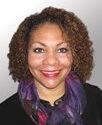
More Women's Health & Beauty Articles
Hormones, Stress and Hair Loss
It is important to recognize and appreciate the importance of hair and the role it plays in the psychosocial aspect of everyone's life. Among the many concerns both males and females express is that hair loss turns out to be most distressing; the most common type being male-pattern hair loss (MPHL) and female pattern hair loss (FPHL). Two of the major contributing factors are hormones and stress.
This article addresses the impact of hormones and stress on hair follicles, the types of hair loss associated with hormonal changes and stress, the psychosocial effects on those affected by hair loss, and home remedies and treatment to prevent hair loss in both males and females.
Factors contributing to hormonal changes occur during pregnancy, postpartum, while taking birth control pills, during the menstrual cycle, and menopause. Some of life's stressors such as the death of a loved one, fear and uncertainty, or divorce, can be traumatic and trigger a negative impact on our hair follicles.
The imbalance in hormones and high levels of stress cause an increase in dormant hair follicles. FPHL and MPHL have very distinctive appearances. Females experience thinning of the hair diffusely, while the male hairline and vertex of the scalp are affected. This type of hair loss is most noticeable during the telogen or resting phase of the hair cycle. Once whatever triggers the hair loss is short lived, the hair follicles will return to the anagen or growing phase.
Hair loss is known to cause depression, anxiety, dissatisfaction with one's appearance and low self-esteem, all resulting in changes in social life. Do not give up hope because hair loss due to hormonal changes and stress do not have to be permanent. In addition to getting professional help there are some do-it-yourself helpful measures one can take such as
Always include protein, iron, zinc, and vitamin B12 in your diet; all needed by the hair and obtained from lean meats, leafy greens, nuts, beans, and fish.
Before shampooing, massage the scalp in a circular motion. This will help to relieve stress and improve blood flow and nutrients to the hair follicles.
Consider using the low level light therapy (LLLT), which stimulates blood circulation in the scalp and is proven to help with inflammation.
Finally, try meditation or yoga. It never fails to relieve stress.
Other Articles You May Find of Interest...
- Sustainable Solutions for Incontinence with Eco-Friendly Product Elitone
- Made In The USA Surrogacy Agency
- Empowering Women Through Orthopedic Health
- Vaginal Discharge: Understanding Normalcy, Concerns, and Care
- Add Some Spring To Your Weight Loss Efforts With Hormone Replacement Therapy
- What Is Your Health Legacy Others Witness That You May Leave Behind
- Surrogacy: A Journey Through Time and Across Cultures

















